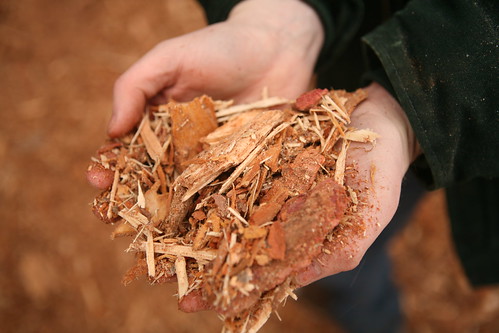
U.S. airline carriers collectively used more than 16 billion gallons of jet fuel in 2014. Given growing concerns over energy independence and the environment, commercial airlines are looking for secure and reliable alternative jet fuels that reduce global emissions.
To address this problem, researchers at Washington State University formed the Northwest Advanced Renewables Alliance (NARA) with biofuels company Gevo, Alaska Airlines, and several other partners across academia, industry, and government. As a result of NARA’s efforts, made possible by a $39.6 million grant from the USDA’s National Institute of Food and Agriculture (NIFA), Alaska Airlines is planning to use 1,000 gallons of NARA-produced biofuel in a demonstration flight scheduled for 2016.
NARA’s alternative jet fuel originates from forest residuals (tree tops, branches) that are left over and must be burned after a forest harvest. Use of forest residuals for bioenergy feedstock capitalizes on the existing forestry industry and eliminates the need to establish growers and a hauling infrastructure. Once harvested, the residuals are ground, screened, and treated to isolate their desirable simple sugars. These are then fermented into an alcohol and converted into jet fuel using Gevo’s proprietary processes.
NARA also has an education team that has successfully promoted energy literacy to approximately 32,000 students thus far through its several member organizations. “Our key objective has been to use the NARA project as a case study of problem-solving around a complex energy issue,” says Dr. Karla Eitel, associate professor at the University of Idaho College of Natural Resources and director of education at the McCall Outdoor Science School (MOSS). One of MOSS’s lessons teaches students to measure the amount of carbon in a tree, calculate the number of miles that could be flown with fuel derived from that tree, and evaluate the trade-offs of leaving the tree standing for carbon sequestration vs. harvesting the tree for wood and fuel.
Education resources are available online. Facing the Future (FtF), another NARA member, offers a series of hands-on, interdisciplinary units targeted across all ages entitled “Fueling Our Future (FoF): Exploring Sustainable Energy Use.” When FtF partnered with the Sustainability in Prisons Project to teach inmates about bioenergy issues, FoF helped students realize their broader role in the global ecosystem. “I learned that I too am energy,” one woman remarked. “I have so much to give.”
NARA combines a diversity of perspectives and works at the intersection of research, education, and extension to address a complex problem. “USDA’s investment in this area has shown tremendous insight and leadership,” says Dr. Mike Wolcott, NARA project co-director, “and we are honored by their trust in our team.”
NIFA invests in and advances agricultural research, education, and extension and seeks to make transformative discoveries that solve societal challenges.
